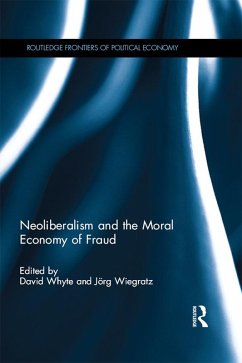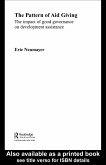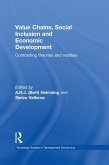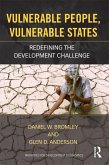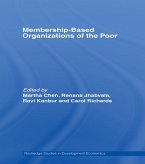Neoliberalism and the Moral Economy of Fraud (eBook, ePUB)
Redaktion: Whyte, David; Wiegratz, Jörg
49,95 €
49,95 €
inkl. MwSt.
Sofort per Download lieferbar

25 °P sammeln
49,95 €
Als Download kaufen

49,95 €
inkl. MwSt.
Sofort per Download lieferbar

25 °P sammeln
Jetzt verschenken
Alle Infos zum eBook verschenken
49,95 €
inkl. MwSt.
Sofort per Download lieferbar
Alle Infos zum eBook verschenken

25 °P sammeln
Neoliberalism and the Moral Economy of Fraud (eBook, ePUB)
Redaktion: Whyte, David; Wiegratz, Jörg
- Format: ePub
- Merkliste
- Auf die Merkliste
- Bewerten Bewerten
- Teilen
- Produkt teilen
- Produkterinnerung
- Produkterinnerung

Bitte loggen Sie sich zunächst in Ihr Kundenkonto ein oder registrieren Sie sich bei
bücher.de, um das eBook-Abo tolino select nutzen zu können.
Hier können Sie sich einloggen
Hier können Sie sich einloggen
Sie sind bereits eingeloggt. Klicken Sie auf 2. tolino select Abo, um fortzufahren.

Bitte loggen Sie sich zunächst in Ihr Kundenkonto ein oder registrieren Sie sich bei bücher.de, um das eBook-Abo tolino select nutzen zu können.
Neoliberalism and the Moral Economy of Fraud shows specifically how these policies, reforms, ideas, social relations and practices that are described as 'neo-liberal' have encouraged and rendered (more) dominant particular values and morals, shaping a type of socio-cultural change across the world that is conducive to fraud. This book investigates these moral worlds of fraud in different settings across the world, and shows how contemporary fraud is not the outcome of a few 'bad apples'.
- Geräte: eReader
- mit Kopierschutz
- eBook Hilfe
- Größe: 2.94MB
Andere Kunden interessierten sich auch für
![The Social Economics of Poverty (eBook, ePUB) The Social Economics of Poverty (eBook, ePUB)]() The Social Economics of Poverty (eBook, ePUB)82,95 €
The Social Economics of Poverty (eBook, ePUB)82,95 €![The Pattern of Aid Giving (eBook, ePUB) The Pattern of Aid Giving (eBook, ePUB)]() Eric NeumayerThe Pattern of Aid Giving (eBook, ePUB)45,95 €
Eric NeumayerThe Pattern of Aid Giving (eBook, ePUB)45,95 €![Value Chains, Social Inclusion and Economic Development (eBook, ePUB) Value Chains, Social Inclusion and Economic Development (eBook, ePUB)]() Value Chains, Social Inclusion and Economic Development (eBook, ePUB)52,95 €
Value Chains, Social Inclusion and Economic Development (eBook, ePUB)52,95 €![The Theory and Practice of Microcredit (eBook, ePUB) The Theory and Practice of Microcredit (eBook, ePUB)]() Wahiduddin MahmudThe Theory and Practice of Microcredit (eBook, ePUB)41,95 €
Wahiduddin MahmudThe Theory and Practice of Microcredit (eBook, ePUB)41,95 €![Vulnerable People, Vulnerable States (eBook, ePUB) Vulnerable People, Vulnerable States (eBook, ePUB)]() Daniel BromleyVulnerable People, Vulnerable States (eBook, ePUB)56,95 €
Daniel BromleyVulnerable People, Vulnerable States (eBook, ePUB)56,95 €![Membership Based Organizations of the Poor (eBook, ePUB) Membership Based Organizations of the Poor (eBook, ePUB)]() Martha ChenMembership Based Organizations of the Poor (eBook, ePUB)14,95 €
Martha ChenMembership Based Organizations of the Poor (eBook, ePUB)14,95 €![Culture, Institutions, and Development (eBook, ePUB) Culture, Institutions, and Development (eBook, ePUB)]() Culture, Institutions, and Development (eBook, ePUB)51,95 €
Culture, Institutions, and Development (eBook, ePUB)51,95 €-
-
-
Neoliberalism and the Moral Economy of Fraud shows specifically how these policies, reforms, ideas, social relations and practices that are described as 'neo-liberal' have encouraged and rendered (more) dominant particular values and morals, shaping a type of socio-cultural change across the world that is conducive to fraud. This book investigates these moral worlds of fraud in different settings across the world, and shows how contemporary fraud is not the outcome of a few 'bad apples'.
Dieser Download kann aus rechtlichen Gründen nur mit Rechnungsadresse in A, B, BG, CY, CZ, D, DK, EW, E, FIN, F, GR, HR, H, IRL, I, LT, L, LR, M, NL, PL, P, R, S, SLO, SK ausgeliefert werden.
Produktdetails
- Produktdetails
- Verlag: Taylor & Francis
- Seitenzahl: 276
- Erscheinungstermin: 26. Mai 2016
- Englisch
- ISBN-13: 9781317397496
- Artikelnr.: 45133875
- Verlag: Taylor & Francis
- Seitenzahl: 276
- Erscheinungstermin: 26. Mai 2016
- Englisch
- ISBN-13: 9781317397496
- Artikelnr.: 45133875
- Herstellerkennzeichnung Die Herstellerinformationen sind derzeit nicht verfügbar.
David Whyte is Professor of Socio-legal Studies at the University of Liverpool, UK. Jörg Wiegratz is Lecturer in Political Economy of Global Development at the University of Leeds, UK.
Chapter 1: Neoliberalism, Moral economy and Fraud - David Whyte and Jörg
Wiegratz
Chapter 2: Economic wrong and economic debate in the neoliberal era -
James G. Carrier
Chapter 3: 'After' the Crisis: morality plays and the renewal of business
as usual - Steve Tombs
Chapter 4: Moral Economy, Unearned Income, and Legalized Corruption -
Andrew Sayer
Chapter 5: The moral economy of post-socialist capitalism: professionals,
rentiers and fraud - Balihar Sanghera
Chapter 6: Do they do evil? The moral economy of tax professionals - John
Christensen
Chapter 7: Genealogy, Parasitism and Moral Economy: The Case of UK
Supermarket Growth - Paul Jones and Michael Mair
Chapter 8: Transnational Tobacco Companies and the Moral Economy of
Cigarette Smuggling - Chris Holden
Chapter 9: Troika, Austerity and the Reluctant Resort to Criminality in
Greece - Steve Hall and Georgios Antonopoulos
Chapter 10: Entrepreneurialism, Corruption and Moral Order in the Criminal
Justice System of the Democratic Republic of Congo - Maritza Felices-Luna
Chapter 11: Murder for gain: Commercial insurance and moralities in South
Africa - Erik Bähre
Chapter 12: Economic freedom mis-sold: neoliberalism and the moral
economies of the PPI scandal in the UK - David Ellis
Chapter 13: Seeking God's Blessings: Pentecostal Religious Discourses,
Pyramidal Schemes and Money Scams in the Southeast of Benin Republic -
Sitna Quiroz
Chapter 14: Producing Moral Ambiguity: State Illegality, Economic Growth,
and Norm Change in Argentina's Sweatshop Business - Matias Dewey
Chapter 15: Public Good for Private Gain: Public sector reform, bureaucrats
and discourses of moral accountability in post-socialist Central Europe -
Nicolette Makovicky
Chapter 16: Fraudulent Values. Materialistic Bosses and the Support for
Bribery and Tax Evasion - Christopher S. Swader
Chapter 17: The Moral Economy of Neoliberal Fraud - David Whyte and Jörg
Wiegratz
Wiegratz
Chapter 2: Economic wrong and economic debate in the neoliberal era -
James G. Carrier
Chapter 3: 'After' the Crisis: morality plays and the renewal of business
as usual - Steve Tombs
Chapter 4: Moral Economy, Unearned Income, and Legalized Corruption -
Andrew Sayer
Chapter 5: The moral economy of post-socialist capitalism: professionals,
rentiers and fraud - Balihar Sanghera
Chapter 6: Do they do evil? The moral economy of tax professionals - John
Christensen
Chapter 7: Genealogy, Parasitism and Moral Economy: The Case of UK
Supermarket Growth - Paul Jones and Michael Mair
Chapter 8: Transnational Tobacco Companies and the Moral Economy of
Cigarette Smuggling - Chris Holden
Chapter 9: Troika, Austerity and the Reluctant Resort to Criminality in
Greece - Steve Hall and Georgios Antonopoulos
Chapter 10: Entrepreneurialism, Corruption and Moral Order in the Criminal
Justice System of the Democratic Republic of Congo - Maritza Felices-Luna
Chapter 11: Murder for gain: Commercial insurance and moralities in South
Africa - Erik Bähre
Chapter 12: Economic freedom mis-sold: neoliberalism and the moral
economies of the PPI scandal in the UK - David Ellis
Chapter 13: Seeking God's Blessings: Pentecostal Religious Discourses,
Pyramidal Schemes and Money Scams in the Southeast of Benin Republic -
Sitna Quiroz
Chapter 14: Producing Moral Ambiguity: State Illegality, Economic Growth,
and Norm Change in Argentina's Sweatshop Business - Matias Dewey
Chapter 15: Public Good for Private Gain: Public sector reform, bureaucrats
and discourses of moral accountability in post-socialist Central Europe -
Nicolette Makovicky
Chapter 16: Fraudulent Values. Materialistic Bosses and the Support for
Bribery and Tax Evasion - Christopher S. Swader
Chapter 17: The Moral Economy of Neoliberal Fraud - David Whyte and Jörg
Wiegratz
Chapter 1: Neoliberalism, Moral economy and Fraud - David Whyte and Jörg
Wiegratz
Chapter 2: Economic wrong and economic debate in the neoliberal era -
James G. Carrier
Chapter 3: 'After' the Crisis: morality plays and the renewal of business
as usual - Steve Tombs
Chapter 4: Moral Economy, Unearned Income, and Legalized Corruption -
Andrew Sayer
Chapter 5: The moral economy of post-socialist capitalism: professionals,
rentiers and fraud - Balihar Sanghera
Chapter 6: Do they do evil? The moral economy of tax professionals - John
Christensen
Chapter 7: Genealogy, Parasitism and Moral Economy: The Case of UK
Supermarket Growth - Paul Jones and Michael Mair
Chapter 8: Transnational Tobacco Companies and the Moral Economy of
Cigarette Smuggling - Chris Holden
Chapter 9: Troika, Austerity and the Reluctant Resort to Criminality in
Greece - Steve Hall and Georgios Antonopoulos
Chapter 10: Entrepreneurialism, Corruption and Moral Order in the Criminal
Justice System of the Democratic Republic of Congo - Maritza Felices-Luna
Chapter 11: Murder for gain: Commercial insurance and moralities in South
Africa - Erik Bähre
Chapter 12: Economic freedom mis-sold: neoliberalism and the moral
economies of the PPI scandal in the UK - David Ellis
Chapter 13: Seeking God's Blessings: Pentecostal Religious Discourses,
Pyramidal Schemes and Money Scams in the Southeast of Benin Republic -
Sitna Quiroz
Chapter 14: Producing Moral Ambiguity: State Illegality, Economic Growth,
and Norm Change in Argentina's Sweatshop Business - Matias Dewey
Chapter 15: Public Good for Private Gain: Public sector reform, bureaucrats
and discourses of moral accountability in post-socialist Central Europe -
Nicolette Makovicky
Chapter 16: Fraudulent Values. Materialistic Bosses and the Support for
Bribery and Tax Evasion - Christopher S. Swader
Chapter 17: The Moral Economy of Neoliberal Fraud - David Whyte and Jörg
Wiegratz
Wiegratz
Chapter 2: Economic wrong and economic debate in the neoliberal era -
James G. Carrier
Chapter 3: 'After' the Crisis: morality plays and the renewal of business
as usual - Steve Tombs
Chapter 4: Moral Economy, Unearned Income, and Legalized Corruption -
Andrew Sayer
Chapter 5: The moral economy of post-socialist capitalism: professionals,
rentiers and fraud - Balihar Sanghera
Chapter 6: Do they do evil? The moral economy of tax professionals - John
Christensen
Chapter 7: Genealogy, Parasitism and Moral Economy: The Case of UK
Supermarket Growth - Paul Jones and Michael Mair
Chapter 8: Transnational Tobacco Companies and the Moral Economy of
Cigarette Smuggling - Chris Holden
Chapter 9: Troika, Austerity and the Reluctant Resort to Criminality in
Greece - Steve Hall and Georgios Antonopoulos
Chapter 10: Entrepreneurialism, Corruption and Moral Order in the Criminal
Justice System of the Democratic Republic of Congo - Maritza Felices-Luna
Chapter 11: Murder for gain: Commercial insurance and moralities in South
Africa - Erik Bähre
Chapter 12: Economic freedom mis-sold: neoliberalism and the moral
economies of the PPI scandal in the UK - David Ellis
Chapter 13: Seeking God's Blessings: Pentecostal Religious Discourses,
Pyramidal Schemes and Money Scams in the Southeast of Benin Republic -
Sitna Quiroz
Chapter 14: Producing Moral Ambiguity: State Illegality, Economic Growth,
and Norm Change in Argentina's Sweatshop Business - Matias Dewey
Chapter 15: Public Good for Private Gain: Public sector reform, bureaucrats
and discourses of moral accountability in post-socialist Central Europe -
Nicolette Makovicky
Chapter 16: Fraudulent Values. Materialistic Bosses and the Support for
Bribery and Tax Evasion - Christopher S. Swader
Chapter 17: The Moral Economy of Neoliberal Fraud - David Whyte and Jörg
Wiegratz
